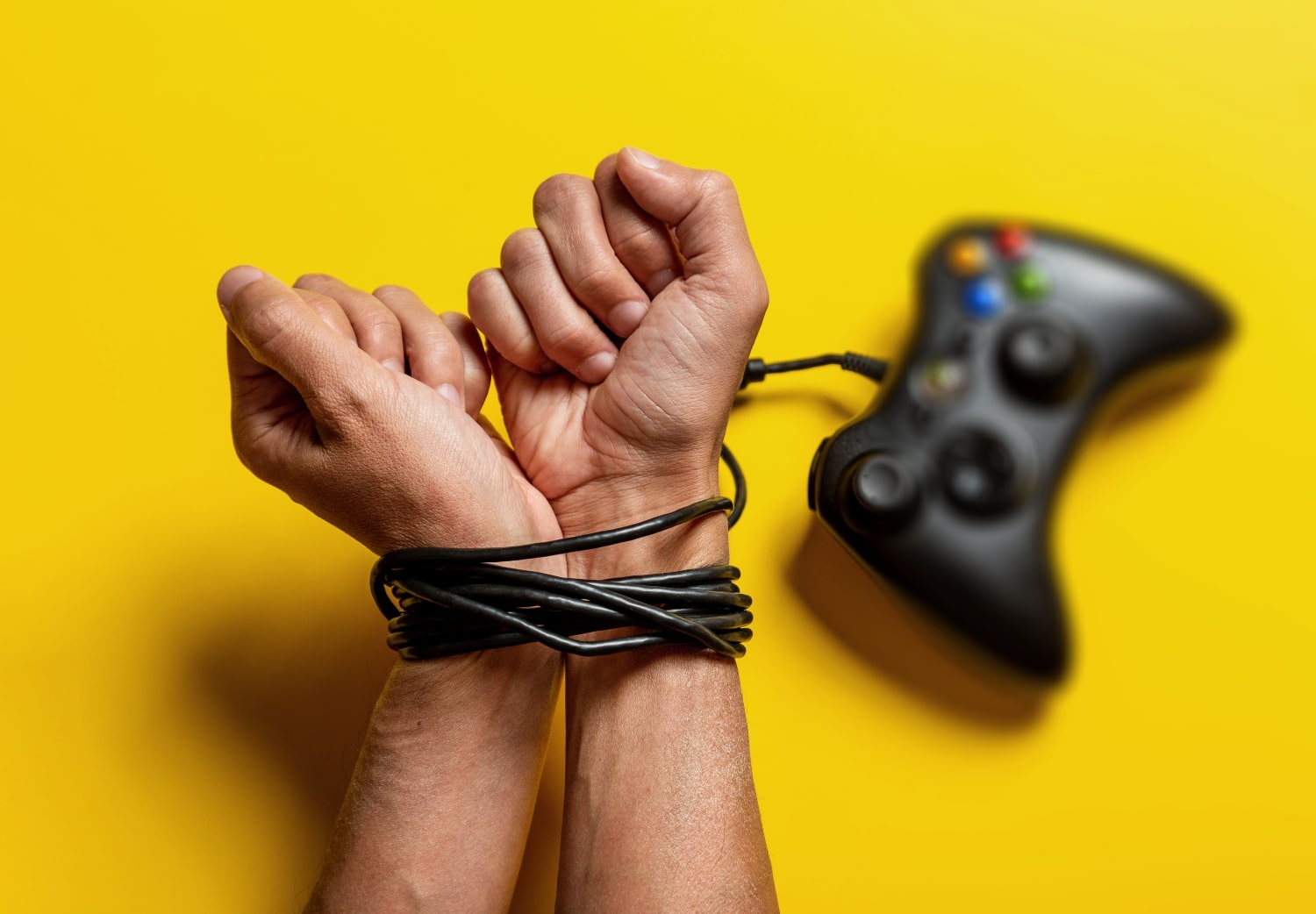Gaming may have been around for almost 50 years, but there is still a lot to be understood about its effects.
It all started in the 1970s, when very simple arcade games first appeared and caught the imagination of children and teenagers, in particular, across the world.
It quickly became clear that such games had the potential for addiction, as players spent a large amount of time trying repeatedly to win.
Back then, however, most of these games were only available on arcade machines – and therefore not accessible around the clock. These days, things have changed significantly.
Video games can now be played almost non-stop thanks to handheld devices such as laptops, tablets and, increasingly, smartphones.
What makes gaming so addictive?
The games themselves are also much more elaborate than they used to be, immersing players into alternate realities, with multiple, complex characters and engaging storylines.
They also allow you to see measurable progress, creating the sensation that you’re both safe and in control.
It’s well known that developers of games employ behavioural psychology to keep you hooked. Games which provide immersive experiences give you a high dose of dopamine. Overexposure to this can, in turn, lead to structural changes in your brain.
In-app purchases, microtransactions and loot boxes are the latest techniques used by gaming developers to get players hooked. Some of these have been made illegal under certain jurisdictions as they are considered a form of gambling – another way to get players to continue playing.
Because of these latest developments in the gaming industry, video game addiction has recently been recognised as a process addiction, very similar to gambling, where the rush achieved by winning becomes one of the primary motivations for playing in the first place.
Who is most susceptible to a gaming addiction?
While the most prolific players of video games have historically been children and teenagers, this demographic is shifting.
Those children who got hooked in the latter part of the 20th century are now fully grown adults. And once habits and patterns of behaviour have become entrenched, they’re hard to shift without work.
What’s more, those with the spending power to buy expensive consoles, games and in-app purchases tend to be adults too.
Therefore, you’re never too old to have a video game addiction. That’s why it’s especially important to be able to recognise the signs of gaming addiction in adults, as well as in children.
How can you spot a gaming addiction?

One study demonstrated that the same parts of the brain that are activated for cravings among alcohol and drug addicts are also activated in video game addicts when game footage is shown. Therefore, video-game and substance addiction share many of the same traits and are identified in many of the same ways.
If you or a loved one is worried about having a video game addiction, it may be helpful to ask the following questions:
- Do you find yourself thinking about gaming a lot when you’re not playing?
- Do you find it difficult to switch it off or reduce the amount of time you play?
- Do you lie about how much time you spend playing video games?
- Are you using video games to improve your mood?
- Are other hobbies now less enjoyable to you?
- Do you find yourself prioritising gaming over your studies, work or relationships with others?
If the answer is “yes” to the majority of these questions, it’s likely that you have an addiction to video games.
What are the different stages of video game addiction?
Becoming an addict doesn’t happen overnight. Those who develop a video game addiction tend to go through four main stages:
- Casual interest. Gamers often begin playing just for fun, spending a few hours a week playing video games.
- Deeper interest. In this phase, the time spent playing increases and gaming starts to take on a greater significance in the person’s life. They also tend to spend more money on it.
- Growing obsession. This is when gaming starts to become the primary focus and it becomes difficult to focus on other activities, with other hobbies being overlooked. Gamers can also become restless or anxious when not playing.
- Gaming addiction. In this final phase, the person has become obsessive. They focus all their time and energy on gaming and become detached from friends, family and colleagues.
According to the World Health Organization, for a gaming disorder to be diagnosed, the behaviour must be in evidence for at least 12 months and be severe enough to result in significant impairment in personal, family, social, educational, occupational or other important areas of functioning.
Are there any other signs of gaming addiction?

A video game addiction can also manifest itself in other physical or mental symptoms. These could be:
- Insomnia or irregular sleeping patterns
- Forgetting to eat regularly (or at all)
- Less time spent on maintaining good personal hygiene
- An inability to focus, leading to poor academic performance
- Irritability, anxiety or anger (especially among children) when not gaming
- A higher propensity to anxiety, depression and loneliness
- Poor social development
- Weight gain
- Bad posture, often leading to neck and back pain
How do you treat a video game addiction?
Identifying and admitting that you have a problem is always the first step to a fulfilling, healthy and happy life.
Seeking professional help is the next step if you want to ensure lasting change.
The most common treatment for those with a gaming addiction is cognitive-behavioural therapy (CBT).
Motivational therapy (MT) in tandem with CBT, as well as other treatments, such as fitness therapy, could also be beneficial to gaming addicts.
Gaming addiction at White River Manor
Therapy in a dedicated recovery centre such as White River Manor can help tackle a gaming addiction by supporting the patient and their families to address any underlying root causes that may not previously have been spotted.
At WRM, we offer unique, personalised addiction recovery. Our strategic approach, backed up by professionals with decades of experience, can arm you with the resources necessary for a deep transformational healing and a full recovery.
If you are having problems with video gaming addiction, or are concerned about a loved one, please contact us to discuss treatment options. We’re here and ready to help.







